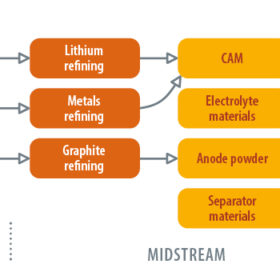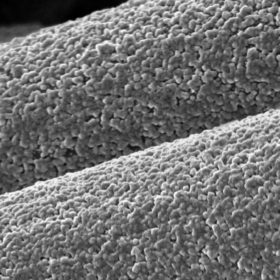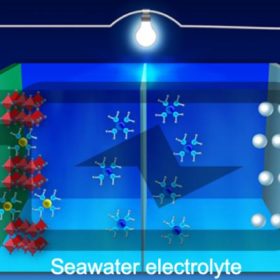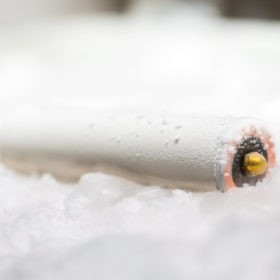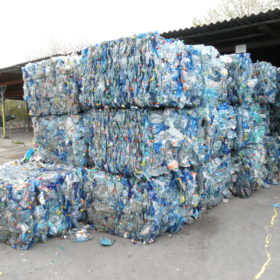Battery supply chain state of health
As the US Uyghur Forced Labor Prevention Act demonstrated, companies preparing to spend big on batteries are at risk of being blindsided by supply-chain-related legislation. Here are some tips on how US developers can anticipate policy curveballs.
A new spin on battery manufacturing
Scientists in Germany developed a new process for manufacturing battery electrodes, that they say could be both more cost effective and environmentally friendly compared to current technologies. The technique could be applied to a range of different battery materials/chemistries and its creators say they are in discussion with a number of battery cell manufacturers regarding pilot production.
A long-lasting aluminum battery
Scientists in the U.S. developed an aluminum battery that demonstrates better than 99.5% reversibility, and could offer “up to 10,000 error-free cycles”. By incorporating a substrate of carbon fibers into the anode design, the group gained better control over chemical bonds that form as the battery charges, leading to greatly improved performance.
Australian startup aims to become one of the first first Li-ion anode producer outside China
A handful of companies are challenging Chinese control of a core material in lithium-ion battery production, before the electrification of transport truly kicks off the global battery boom. International Graphite, a Perth-based startup at the forefront of this effort, recently spoke to pv magazine Australia about the surprisingly collaborative race to feed global demand.
Seawater aqueous battery based on alloy of zinc and manganese
Scientists in the United States developed a new anode for aqueous batteries. A working battery utilizing this anode, with seawater as an electrolyte, demonstrated impressive energy density, and remained stable after 1,000 hours of high current cycling. The group is already discussing the potential of their approach in large-scale manufacturing.
Lithium metal enabler for low temperature batteries
Scientists in the United States demonstrated a new route to improving battery performance. The group integrated a self-assembling layer which forms on the surface of the anode, preventing the formation of dendrites. While their prototype has a very short lifetime, the group is convinced approach could lead to better performing batteries, and is particularly promising for low temperature applications.
Graphene doping a step forward for sodium batteries
Scientists at Switzerland’s École Polytechnique Fédérale de Lausanne (EPFL) have developed an anode from graphene doped with sodium, which they say could potentially overcome some of the fundamental issues in increasing storage capacity and the lifetime of sodium-ion batteries.
New insights into lithium-ion battery structure
Scientists at Moscow’s Skoltech Center for Energy Science and Technology have developed a method of visualizing the formation of layers on battery electrodes during their initial operation. The observations reveal various mechanisms that could be optimized to improve battery performance and operational lifetime.
Instant battery electrodes – just two minutes in the microwave
Scientists in the United States have used microwaves to convert ubiquitous plastic packaging material polyethylene terephthalate into a battery electrode component. The researchers say anodes based on the material could be suitable for both lithium-ion and sodium-ion devices.
Coating could lead to commercial lithium-metal batteries
A new coating developed by scientists at Stanford promises to bring lithium metal batteries ‘closer to reality’, by significantly extending their operational lifetime and limiting the occurrence of dendrites at the anode, which can cause short circuiting and fires.
